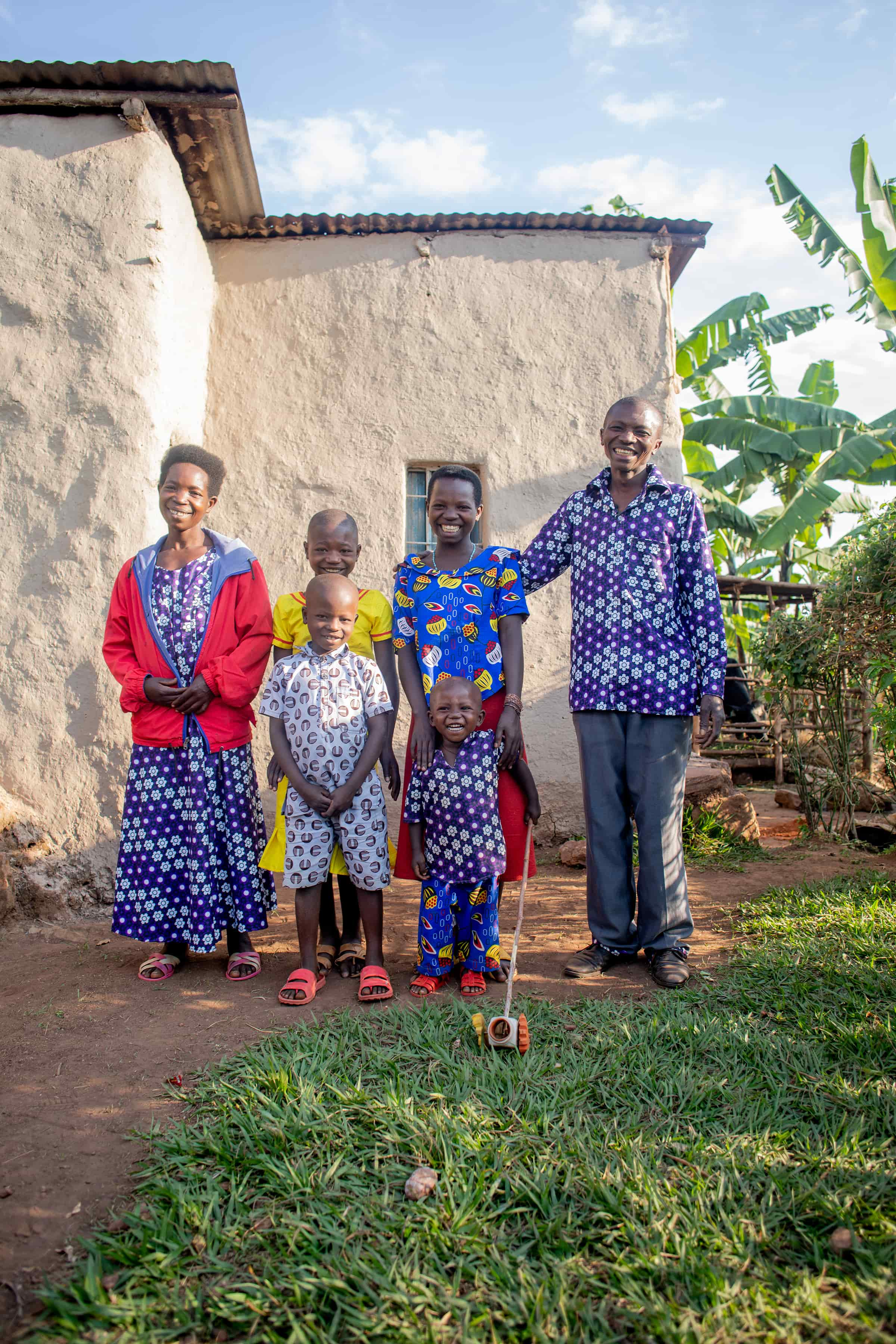of the Sugira Muryango (“Strengthen the Family”) intervention being tested in Rwanda. (Courtesy photo)
Strengthening the family
'Sugira Muryango' program in Rwanda
The successful outcomes of a Boston College School of Social Work trial in Rwanda—one that reached thousands of impoverished families and delivered an intervention aimed at reducing family violence and promoting early childhood development—have been highlighted in The Journal of Child Psychology and Psychiatry.
Created as a response to intergenerational violence, which in Rwanda is linked to trauma and loss stemming from the 1994 genocide, the family home-visiting intervention is integrated with the social protection system serving families in extreme poverty. Sugira Muryango (SM), or “Strengthen the Family,” was delivered by a cadre of child protection volunteers who provide active coaching to build the skill of male and female caregivers in interaction with their young children, encourage learning through play, and ensure a safe and healthy environment.
The project is the work of BCSSW’s Research Program on Children and Adversity (RPCA), seven of whose members authored the paper, including Salem Professor in Global Practice and RPCA Director Theresa Betancourt. RPCA developed SM in collaboration with both national and local Rwandan government, the University of Rwanda, and local nonprofit FXB Rwanda; the Rwandan National Child Development Agency works with the volunteers, known as Inshuti Z’Umuryango (IZU), “Friends of the Family.”
Through an implementation strategy known as PLAY Collaborative, 2,608 IZUs were trained for SM, and 2,461 in total actively delivered the intervention, reaching 19,548 caregivers and 9,483 children in 8,745 households. To evaluate the effectiveness of the intervention during scaling, the RPCA study focused on 538 households across three districts, including 778 caregivers and 555 children.
“SM’s holistic home-visiting approach engages both male and female caregivers in playful parenting and content to promote ECD and prevent violence,” the researchers reported in the journal article. “Caregivers receiving SM increased ECD stimulation (e.g. playing, singing with children); improved stimulating home environments by providing more learning materials and engaging children in daily activities; increased children’s dietary diversity; and reducing deprivation-based harsh discipline.
“Moreover, in-home visits facilitated father and other caregiver participation in SM, strengthening father engagement in caregiving decisions and improving overall mental health as well as depression symptoms for male and female caregivers. Household hygiene practices improved, particularly with respect to water storage and treatment.”

Last year, the SM initiative received a five-year, $2.9 million National Institute of Mental Health grant enabling RPCA and its collaborators to develop and test tools for the Rwandan government to use in ensuring continued quality in delivering SM. This grant is enabling the team to expand delivery beyond the original three districts described in the journal article while testing a user-friendly digital dashboard that summarizes key metrics and enables easier tracking of quality, reach, referrals, and other critical processes. While the journal article focuses on the period prior to the awarding of the grant, and does not take into account activity since then, lead writer RPCA Research Scientist Candace Black said the paper provides critical evidence about maintaining intervention impact in the context of scaling.
“The importance of early childhood development, and of preventing family violence, is widely acknowledged—all the more so in settings that have limited resources to provide the services and means,” explained Black. “With the publication of this paper, we are saying that we have demonstrated evidence of a successful intervention and the means to scale it effectively on a wider basis.
“The challenge is to sustain that success while transitioning from a smaller, more controlled setting into a larger one with often complex and dynamic situations. Evidence shows that a successful implementation strategy relies on an engaged government and local stakeholders. Fortunately, we have excellent partners in the Rwandan government and a good infrastructure that enables the IZU volunteers to deliver the intervention.”
A key element of SM to be examined is a Digital Dashboard tool developed by the University of Rwanda and other partners to support scaling the intervention with quality. The Dashboard streamlines collection of data on the intervention, improves the visibility and searchability of implementation data, facilitates caregiver mental health and social services and follow-up, and serves as a training platform for interventionists.
Recent and ongoing uncertainty over federal funding for overseas work has complicated this phase, but the study—while smaller in scale than envisioned—will move forward, according to RPCA.
For more about the Research Program on Children and Adversity, visit bc.edu/rpca
